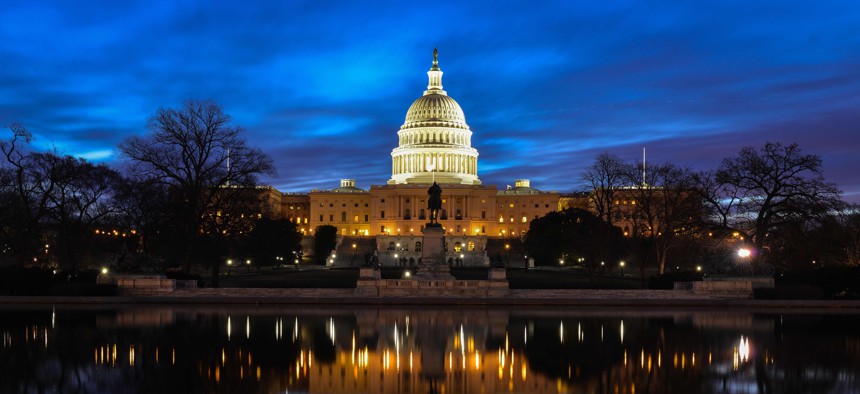Proposals Would Help States and Localities With Paid Leave Costs

Shutterstock
Congressional lawmakers reintroduced bills that would extend payroll tax credits to state and local governments, to help offset the expense of coronavirus-related leave for their workers.
In the early days of the pandemic, last March, Congress passed coronavirus relief legislation that included special emergency paid leave standards for people who needed to take off time from work to deal with health and family difficulties brought on by Covid-19.
Those provisions applied to certain businesses as well as state and local government employers. But while private sector companies were eligible under the law for federal payroll tax credits to offset the cost of extending the leave to their workers, public sector employers—who also pay payroll taxes—were not.
This week, a group of four Senate Democrats said they had reintroduced a bill that would change that policy and extend the tax credits to state and local governments.
"It’s unfair that state and local governments aren’t currently eligible for tax credits to help give public employees paid leave," Sen. Tina Smith, of Minnesota, the bill's lead sponsor, said in a statement. "They should receive relief to help offset the additional cost of paid leave, just like private companies," Smith added. "My bill will fix this problem."
Around the time Congress approved the Families First Coronavirus Response Act, which included the paid leave provisions, a coalition of state and local government groups, representing state, city and county leaders, flagged the tax credit issue as problematic. But to no avail.
By not providing the credits, the groups argued, the federal policy created an unfunded mandate and another stressor on state and local budgets already knocked off kilter by the pandemic.
On Dec. 31, the key paid leave requirements in the law expired, meaning employers no longer had to adhere to them.
Legislation then-President Trump signed in late December extended the tax credits to eligible employers through March 31, though. So businesses that choose voluntarily to let workers take paid leave for reasons tied to Covid-19, can still claim the credits. But eligibility for the credits was not revised to allow state and local government employers to tap into them to cover similar costs.
Smith floated a proposal to expand the tax credits to the public sector last year as well. But it was unsuccessful.
Over in the House, U.S. Rep. Brad Schneider, an Illinois Democrat, is the lead sponsor on a bipartisan companion bill to the one backed by Smith. Schneider also put forward a measure like this last year that attracted 118 co-sponsors, including 12 Republicans.
"Allowing public employers such as state and local governments and public schools, utilities, and transit agencies to access the same payroll tax credits available to private businesses is a straightforward and bipartisan way to help our communities,” Schneider said.
Both the Senate and the House bills last year died without committee votes. Whether the proposals could gain greater traction with Democrats now holding a slim majority in the Senate and with President Biden in the White House, remains to be seen.
PREVIOUSLY on Route Fifty:
Bill Lucia is a senior reporter for Route Fifty and is based in Olympia, Washington.
NEXT STORY: Grocery Groups Sue Over Mandated Hazard Pay for Workers






